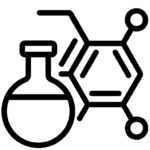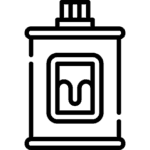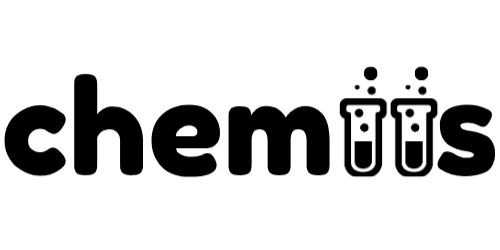Riboflavin, also known as Vitamin B2, is a water-soluble vitamin that plays a crucial role in maintaining overall health. It is vital for the body’s energy production, as it helps convert carbohydrates into ATP (adenosine triphosphate), the energy currency of cells. Riboflavin also supports normal growth and development and aids in the metabolism of fats, drugs, and steroids. Riboflavin is naturally found in a variety of foods, including dairy products, eggs, leafy vegetables, and certain grains. It is commonly used in supplements, food fortification, and in the pharmaceutical industry for its therapeutic properties.
Applications
- Food and Beverage Industry
- Fortification:
Riboflavin is commonly added to food products like cereals, bread, and milk to prevent vitamin B2 deficiency, particularly in populations with limited access to diverse food sources. - Colorant:
It is used as a natural yellow colorant in food and beverage products, such as drinks, candies, and baked goods. The E-number for Riboflavin as a food additive is E101.
- Fortification:
- Pharmaceuticals and Supplements
- Dietary Supplements:
Riboflavin is a popular ingredient in multivitamins and B-complex supplements, used to support overall health, improve skin health, and help treat riboflavin deficiencies. - Therapeutic Uses:
It is used to treat or prevent Vitamin B2 deficiency, a condition that can lead to symptoms such as sore throat, cracked lips, and fatigue. - Migraine Treatment:
Riboflavin has been studied for its potential to reduce the frequency and severity of migraines, often used as a preventive treatment.
- Dietary Supplements:
- Cosmetic and Personal Care
- Skin Care:
Riboflavin is used in various skincare products due to its antioxidant properties, promoting healthy skin and reducing signs of aging. - Hair Health:
It is included in hair care products, as it supports healthy hair growth and helps maintain the scalp’s health by promoting circulation.
- Skin Care:
- Agriculture and Animal Feed
- Animal Nutrition:
Riboflavin is used as a supplement in animal feed to ensure proper growth and metabolic functioning, particularly in poultry and livestock. - Plant Health:
Some agricultural formulations incorporate riboflavin to help stimulate plant growth and improve photosynthesis, promoting healthy plant development.
- Animal Nutrition:
- Biotechnology and Research
- Cell Culture Media:
Riboflavin is used in laboratory settings to enhance the growth and development of cells, particularly in media for culturing microorganisms and mammalian cells. - Research Studies:
It is utilized in various biochemical research projects to study metabolic pathways and enzyme activities, especially in studies related to mitochondrial function.
- Cell Culture Media:
- Energy Production and Metabolism
- Metabolism Support:
As a coenzyme, riboflavin is involved in the metabolic processes that produce energy by converting carbohydrates, fats, and proteins into usable energy forms.
- Metabolism Support:
Safety and Handling
- Hazards:
Riboflavin is generally considered safe for consumption and handling in appropriate amounts. However, excessive consumption (usually through supplements) can lead to side effects such as yellow-orange discoloration of urine.- Skin and Eye Irritation: May cause minor irritation if contact occurs with concentrated forms.
- Ingestion of Large Quantities: While riboflavin toxicity is rare (since it is water-soluble and excess amounts are typically excreted), excessive intake can cause minor gastrointestinal upset.
- Precautions:
- Personal Protective Equipment (PPE): Wear gloves, goggles, and a lab coat when handling large quantities of riboflavin in its powdered form.
- Storage: Store in a tightly sealed container in a cool, dry place, away from light and heat. Riboflavin is light-sensitive, and prolonged exposure to sunlight or artificial light can cause degradation.
- Ventilation: Ensure good ventilation in areas where large quantities of riboflavin powder are handled.
- Avoiding Inhalation: Avoid inhaling riboflavin dust, especially in powdered form, to prevent respiratory irritation.
- First Aid Measures:
- Eye Contact: Flush immediately with plenty of water for at least 15 minutes. Seek medical attention if irritation persists.
- Skin Contact: Wash the affected area thoroughly with soap and water. If irritation occurs, seek medical advice.
- Inhalation: Move to fresh air if inhaled. Seek medical advice if breathing difficulties arise.
- Ingestion: If consumed in large amounts, rinse the mouth with water and seek medical attention if necessary.
- Disposal:
Dispose of riboflavin in accordance with local hazardous waste disposal regulations. It is considered safe for disposal in small amounts via standard waste streams.


















Reviews
Clear filtersThere are no reviews yet.